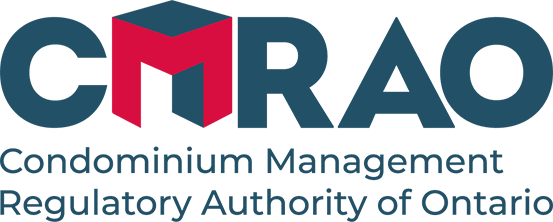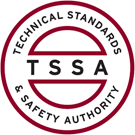A message from the Minister
Rebuilding consumer confidence — at home, online and in our communities
Ontario is a great place to call home. Whether you’re looking for the hustle and bustle of a big city, or the peace and quiet of a rural retreat, we’ve got it all.
We’re home to a stable and competitive business environment and world-class health care.
We are a province that is accepting, inclusive and connected. We have livable space with the comforts and quality of life to attract the world’s most talented people.
While Ontario has all of this, we also want a place that works for us. A place where our needs and concerns as citizens are met — and where we feel confident that we’re protected when we spend our hard-earned money. Trust is important to consumers. Economies thrive when there is trust between people and the companies they buy products and services from.
Our government recognizes that the people of Ontario need stronger protections. We want you to feel confident that you are well informed and have robust protections when you shop online or enter into a contract. And we want to assure you that you have a voice in helping us create stronger rules to protect you and your families.
We have a clear vision for Ontario’s consumers: to rebuild consumer confidence by offering you stronger protections at home, online and in your communities.
The work my ministry is doing is part of our plan to build a smarter government that works better for people. It’s about updating outdated legislation and adopting digital practices to strengthen protection and promote trust and confidence for the people of Ontario. We’re building the foundation for a modern and equitable system that truly puts people at the centre of everything we do — both now and for future generations.
Building on our successes over the past year, the proposed Rebuilding Consumer Confidence Act, 2019, is the latest in a series of measures intended to help protect consumers and put them at the centre of everything we do. We will expand on these measures in the coming year through more consultations, including a review of the Consumer Protection Act for the first time in 15 years. These important consultations will help inform future rule changes and will enable us to continue to implement stronger protections for the people of this province.
We’re not just the government, we’re your government — and we’re listening.
Sincerely,
The Honourable Lisa Thompson
Minister of Government and Consumer Services
Rebuilding consumer confidence
Trust is important to consumers. We know the people of Ontario need stronger protections so they have trust and confidence when they can spend their hard-earned money — whether they’re making day-to-day purchases or making important investments in their futures. Our Ontario economy thrives when Ontarians can confidently buy products and services for themselves and for their families.
Lisa Thompson
Enhancing consumer protections
The people of Ontario need stronger protections because our economy works best when people trust the businesses, products and services they spend their hard-earned money on.
The way people make purchases, and how businesses work, has changed, especially with the rise in e-commerce over the years. As a result, consumer protection laws need to be updated so they remain fair and give consumers confidence that their rights are protected. Updated laws should also improve Ontario’s reputation as a place for businesses to grow and invest in. That’s why we are setting a high priority on updating laws to respond to the needs of consumers, while fostering the continued growth of a thriving economy.
Protecting Ontario’s consumers — what we've done to date
Empowering consumers to make more informed decisions
In October 2019, Tarion Warranty Corporation announced that new measures are being put in place to help educate and inform prospective new home buyers — measures our government requested be implemented to especially help consumers buying a residential unit in certain pre-construction condominium projects.
These measures include the addition of new search tools on Tarion’s Ontario Builder Directory and a new detailed information sheet that highlights potential risks of purchasing certain types of residential units in a pre-construction condominium project. Buyers of these units will benefit from new rules requiring purchase agreements to be accompanied by an information sheet highlighting risks and considerations that come with the purchase, including the expected date when a purchaser can take occupancy and early termination conditions that would allow a developer to cancel a project. These mandatory disclosures in purchase agreements and additional information on new home builders and vendors will help improve transparency and consumer protection for new home buyers.
Building confidence for home buyers
The real estate market in Ontario, and across Canada, has seen enormous changes over the past 20 years. The total value of all residential properties more than doubled in Ontario and housing values are sky-high. Taller condo skyscrapers and new subdivisions embody the hopes and dreams of people provincewide.
To help ensure people who are buying and selling homes continue to benefit from strong consumer protection, our government has proposed enhancements to the Real Estate and Business Brokers Act that would, if passed, improve consumer protection and choice in the market — providing more transparency in the purchase and sale process, and clearer information for consumers about what a real estate brokerage and professional must do for them.
The proposed changes would also improve professionalism and put more tools in place to support industry compliance. In addition, they would create a stronger business environment for registered real estate brokerages, brokers and salespersons by allowing real estate professionals to incorporate and be paid through the corporation, bringing regulations up to date and reducing regulatory burden.
These proposed changes are a result of a long and thorough consultation process with stakeholders and consumers across Ontario. And they will help bring our legislation in line with the realities of today’s business practices and the expectations of consumers when making their biggest and most important purchase.
Giving consumers more choice when choosing wine
We’ve expanded wine selection by adding a Marquette hybrid grape variety to the VQA list and allowing table wines to include grapes from more than one harvest year. More flexibility for Ontario’s VQA wineries means more choice when buying table wine for your dinner party.
Providing faster, more efficient delivery of government services
In April 2019, we revealed our digital plan. It included, among other measures, the Simpler, Faster, Better Services Act, which will significantly improve how government works and the services it delivers to the people and businesses of Ontario. As part of our plan to make life easier for consumers, we have clarified and expanded the ways they can electronically get the consumer information guide — A Guide to Death Care in Ontario — that must be provided by certain bereavement service operators.
We also made changes to the Consumer Reporting Act, the Collection and Debt Settlement Services Act, and a number of other statutes to allow documents and notices to be served or received digitally instead of only in person or by mail.
Protecting Ontario’s consumers — looking ahead
Consumer spending drives Ontario’s economy and builds a vibrant province. We need to update consumer laws to reflect the new landscape for how we live our lives today. In doing so, we will enhance consumer protections, reduce burden and create a digital first climate.
We’re proposing necessary changes to improve and update consumer services and protections across key areas that matter most to the people of Ontario. We will consult on many of these proposed changes in the coming year to help implement future rules to strengthen protections for the people of this province.
Protecting people’s biggest investments — their homes
Reforming Tarion and overhauling the Ontario new home warranties and protections program
Major changes are needed to protect one of the biggest purchases of a lifetime — a new home — so people are better protected against construction defects and builders who fail to remedy them. Ontarians want strong new home warranties and protections. And we’re listening.
We recognize that the administration of the new home warranties and protections program in this province is flawed, and that Tarion has not done nearly enough to fulfil its responsibilities to protect new home buyers.

We’re taking action to protect your hard-earned dollars by proposing an overhaul of the Ontario new home warranties and protections program and by reforming Tarion. We want to make it consumer-focused and reduce the role of builders and vendors by proceeding with enhancements to the current single administrator model for warranties and protections delivery.
Over the past several months, our government looked at the feasibility of a multi-provider insurance model for new home warranties and protections in Ontario. Based on extensive research and consultations, we are not proceeding with a multi-provider insurance model. It is clear that enhancements to the single administrator model for warranties and protections delivery are in the best interest of the people of Ontario.
We are also proposing changes to provide an enhanced dispute resolution process and deliver new measures to promote better-built new homes, such as providing Tarion with greater ability to scrutinize builder applications and conduct inspections before a homeowner moves in.
These proposed changes respond to 29 of 32 recommendations in the Auditor General’s 2019 Special Audit of Tarion by taking steps to make significant improvements that would make the program responsive to the needs of consumers.
Consultations will begin in the spring of 2020 so we can reflect on the needs and concerns of consumers — putting them first — as we develop the rules around these changes and start rolling them out in the fall of 2020.
Mohammed and Aneesa’s Story
Mohammed and his wife, Aneesa, were horrified when they showed up for the pre-delivery inspection of their brand-new home in Mississauga. Electricians, drywallers, plumbers and a variety of other tradespeople were still busy constructing their home and, despite assurances from the builder, the couple seriously doubted their $700,000 new build would be ready for possession in three weeks. Electrical wires hung from ceilings and stuck out from unfinished walls, and appliances and cabinets were not attached properly in the kitchen. Mohammed and Aneesa immediately hired an independent contractor to examine the home. The result was a deficiency report citing 170 problems, including poor ventilation and improper roof installation.
We’re introducing more protections for new home buyers, which include enhanced dispute resolution and promoting better-built homes at the outset. We will also make other changes to provide consumers with greater transparency. These changes would help people like Mohammed and Aneesa feel confident that the dream home they were expecting is the one they will actually end up getting.
Giving condo dwellers easier online access to condo forms
People across the globe have gotten used to 24-hour access — accessing the goods and services they want, when they want them, where they want them. They’ve gotten used to buying goods online, and having their purchases delivered to their door, sometimes even on the same day. They expect convenience and services that work for them, on their own terms. They’ve come to expect choice.
Ontarians are no exception. That’s why frequently used condo forms will be more easily accessible online as of January 1, 2020, on the Condominium Authority of Ontario’s website which already houses other condo-related forms.
Priya’s Story
Priya is a condo owner interested in requesting condo-related records from her condo corporation. Priya decides to formally request the records using the request for records form under the Condominium Act. Priya will be able to easily go to the Condominium Authority of Ontario’s website to find and download the appropriate form to request records from her condo corporation.
Improving condo living and providing better protection for financial investments
As a first-time condo buyer, there’s a lot to learn — and the more you know about buying your first condo, the better your decisions will be.
The Condominium Act lacks clear, plain-language information to help first-time buyers and condo residents understand condo life when buying and living in a condo. In early 2020, we will consult on regulatory changes under the act to help improve condo living and protect your financial investment — changes that could come into effect starting in summer 2020. This could include requiring the Condominium Authority of Ontario to develop a condo guide for buyers and requiring developers to provide it at the point of purchase. We will also be consulting on providing condo corporations with clearer guidelines or standards for the procurement of services and goods and strengthening the financial management of reserve funds.
Holly’s Story
Holly is looking to buy a new home and decides that a condo fits her needs. She decides to purchase a newly built condo. When she’s making her purchase, Holly is provided with a plain-language guide describing her rights and responsibilities as a condo owner, as well as information on condo living. After Holly moves in, she has a dispute with her condo board and finds out that she has access to fast and effective online dispute resolution services. After several years when her condo building’s garden needs landscaping, Holly has peace of mind knowing that her condo board is procuring gardening services in a transparent way. We will consult to make sure that supports like the ones described above are available to people like Holly in the future.
Did you know?
When buying a newly built condo, generally:
- you have the right to cancel an agreement of purchase and sale within 10 days (called a “cooling off period”) of receiving a copy of the fully signed purchase and sale agreement and the disclosure statement
- you also have the right to cancel an agreement of purchase and sale within 10 days if there is a material change to the disclosure statement
- certain deposits must be held in trust by the developer
- if you cancel within 10 days, the developer generally must refund any deposits, plus any interest that may be payable, and
- the developer must take all reasonable steps to complete the project
Making Ontario’s administrative authorities work better for people
Improving accountability, oversight and transparency requirements for administrative authorities
Administrative authorities are responsible for ensuring that a number of laws that protect and serve Ontarians, including those that promote consumer protection, public safety and safe retirement homes, are applied and enforced. But, because they are governed by different statutes that have not been updated uniformly, there are inconsistencies. Some of the authorities are subject to relatively more or fewer requirements. In addition, some legislation governing these authorities has not kept pace with current accountability standards. For example, one statute that governs five administrative authorities, the Safety and Consumer Statutes Administration Act, 1996, has not been updated in over 20 years.
We need improved accountability, better oversight and more consistent requirements for administrative authorities to ensure they deliver critical programs and services in your best interest. We’re doing that by proposing to harmonize certain key accountability, governance and other requirements for most administrative authorities to improve the current administrative authority framework and heighten trust and accountability for the people of Ontario.
The need for change was highlighted in the Auditor General’s 2019 Special Audit of the Tarion Warranty Corporation and in her 2018 report on the Technical Standards and Safety Authority.
Administrative Authorities
The Ministry of Government and Consumer Services has oversight of the following administrative authorities that have been given responsibility to administer legislation and regulations:

Bereavement Authority of Ontario
Regulates funeral establishment, cemetery, crematorium and transfer service operators and their salespersons, funeral directors and preplanners, in Ontario.

Condominium Authority of Ontario
Provides services and resources to condo owners, including an online dispute resolution service, a public registry of condo corporations, and mandatory training for condo directors.

Condominium Management Regulatory Authority of Ontario
Regulates condo managers and condo management service providers in Ontario.
Electrical Safety Authority
Enhances public electrical safety through licensing of electrical contractors, overseeing the safety requirements of local distribution companies, carrying out inspections under the Ontario Electrical Safety Code and responding to unsafe industrial and commercial electrical products.

Ontario Motor Vehicle Industry Council
Regulates motor vehicle dealers and salespersons in Ontario.

Real Estate Council of Ontario
Regulates real estate professionals and brokerages in Ontario.

Tarion Warranty Corporation
Administers the Ontario New Home Warranties Plan, manages a guarantee fund, and licenses new home vendor and builders in Ontario.

Travel Industry Council of Ontario
Registers travel agents and travel wholesalers operating in Ontario, and administers the Ontario Travel Industry Compensation Fund.

Technical Standards and Safety Authority
Responsible for promoting and enforcing public safety in the fuels, boilers and pressure vessels, operating engineers, and elevating and amusement device sectors.

Vintners Quality Alliance Ontario
Responsible for maintaining the integrity of local wine appellations and enforcing winemaking and labelling standards.
Protecting people in their day-to-day lives
Enhancing access to cremation services
Many people today choose cremation over traditional burial. Effective January 1, 2020, you will be able to have your body, or that of your loved one, cremated despite it having undergone certain cancer treatments that use radioactive implants — such as manual brachytherapy as a treatment for prostate or breast cancer — without needing to have the implants removed before cremation.
Members of the medical community expressed concerns that prohibiting cremation of human bodies with radioactive implants was causing some individuals, who require or prefer cremation, to refuse effective prostate and breast cancer treatment using radioactive implants, particularly manual brachytherapy. These implants can be difficult or impossible to remove from a body.
Targeted consultations with industry associations, Cancer Care Ontario, radiation oncology experts, radiation safety experts — including the Canadian Nuclear Safety Commission — and the Bereavement Authority of Ontario helped drive this significant change, which will provide families with more choice during a painful time.
This regulatory change is intended to align generally with the Radiation Protection Guidelines for Safe Handling of Decedents, published by the Canadian Nuclear Safety Commission in June 2018. The guidelines indicate that it is typically not dangerous to handle a body with radioactive implants and that standard procedures for handling decedents taken by death-care professionals already offer adequate radiation protection.
The guidelines also set out additional radiation-protection precautions that can be taken by crematorium operators and other death-care professionals in dealing with a body that received a radioactive implant if two years or less have passed since the body received the implant.
Strengthening compliance to improve elevator safety and availability
The number of elevators in Ontario’s housing sector is increasing due to the large construction boom in the province. Out-of-service elevators lead to accessibility and quality-of-life issues for vulnerable populations, including seniors and those with disabilities. There are also safety issues arising from lack of access for first responders in the event of an emergency. That’s why we need more protections against inadequate elevator performance. In addition, the 2018 Auditor General’s report highlighted a low compliance rate with current elevator safety laws.

We’re addressing elevator issues under the Technical Standards and Safety Act by consulting in spring 2020 on the use of administrative monetary penalties as an enforcement tool to improve compliance with elevator laws. This proposed change aligns with the Auditor General’s recommendation for the ministry and the Technical Standards and Safety Authority (TSSA) to resolve current safety issues in the sector and bring the safety compliance rate to an acceptable level. We are also considering changes that would require elevator outage data to be reported to and be posted online by the TSSA.
These changes are aimed at improving elevator performance in your building by promoting better maintenance. You’ll also be able to find more information about outages online to make more informed choices, which is especially important if you have accessibility needs.
Enhancing protection and transparency when buying tickets to Ontario events
You’ve likely purchased a ticket to a concert or sporting event online. Sometimes when you are looking for a good price on a ticket to a hockey game or a rock concert, you can get a little lost in the maze of international websites that offer price comparisons. When you find the best deal you book instantly, but you may not have noticed which currency was used in the advertised price.
Some tickets on the secondary market are offered in non-Canadian currency, typically US dollars. While sellers are required to indicate when non-Canadian currency is used in a clear, prominent and easy-to-understand way, consumers may not be aware that the price is in a foreign currency until it shows up on their credit card statement. You may also be charged a foreign currency conversion fee by credit card companies. This adds to the total cost of the ticket and is unfair for Ontario consumers purchasing tickets to local events.
We are proposing updates to the Ticket Sales Act to ensure that all dollar amounts in ticket offers are listed and charged in Canadian currency. Being able to buy concert tickets online and know exactly how much they are costing you would make your experience that much better.
In addition, we will consult in early 2020 on proposed regulations under the Ticket Sales Act to improve protection, transparency and choice for consumers buying tickets to Ontario events. The consultations will include securing feedback on items that promote choice, including ensuring ticket purchasers can transfer their tickets and that consumers who don’t have smartphones or want paper tickets can get them upon request.
We will also consult on new administrative monetary penalties to discourage bad behaviour in the ticket industry.
Did you know?
When making a ticket available for sale or facilitating the sale of a ticket, ticket businesses are required to disclose the:
- face value and total price of the ticket, including a separately itemized list of any applicable fees, service charges and taxes, and
- seat location of the ticket
Enhanced protections against the impacts of identity theft
Data breaches through hacking attacks are all too common these days, and the release of personal details about you can lead to identity thieves creating duplicate credit cards or taking out loans in your name. Since credit reporting agencies don’t need to provide credit reports electronically, people may not have seamless access to current credit information being used by banks, landlords, etc. More transparency around credit information will help protect consumers against the impacts of identity theft.
That’s why we will consult on the Consumer Reporting Act to assess how to help you better monitor your credit rating and protect your credit information if your identity is stolen.

Did you know?
By law, consumer reporting agencies must get your consent before they can share a copy of your consumer (credit) report. They may provide a copy of your credit report to:
- lenders and creditors
- insurance companies
- landlords, and
- potential employers (for example, to assess applications for loans, lines of credit, insurance, apartment rentals or employment)
Enhancing consumer protections when people make purchases
Protecting consumers from bad actors by enhancing enforcement
People want to feel confident when making a purchase that the business they’re dealing with is complying with the rules. But we know that’s not always the case. In some cases, bad actors are not complying with the rules under the Consumer Protection Act, a key piece of legislation in Ontario covering the most common consumer transactions.
We’re proposing to improve enforcement by enabling administrative monetary penalties under the act to help deal with non-compliant businesses.
Improving rules for collection agencies
It can be stressful dealing with collection and debt-settlement companies when you may owe money that you’re having difficulty paying back. Sometimes collection agencies hound people who have already paid, or for debts they don’t owe to begin with, as they’ve reached the wrong person. We are reviewing the laws that cover collection agencies, including debt settlement service providers, to improve protections.
Protecting consumers when buying travel services
When you’re buying travel services from a travel agent, we want to make sure you’re leaving all your worries at home. That’s why, in 2020, we’re consulting with people and businesses on proposed regulatory changes under the Travel Industry Act that will help protect consumers when buying travel services — while also reducing burden on travel agents and wholesaler businesses so they can thrive and grow. The consultation will include, among others, looking at how we can update advertising rules and provide the regulator, the Travel Industry Council of Ontario, with additional compliance tools. Such tools would enable the council to better address bad conduct in the travel industry to ensure consumers are buying from reputable registered agents. As part of the consultation we will also look at reducing financial reporting requirements to minimize burden on businesses.
We’re listening
Promoting public trust and confidence through Ontario’s Data Strategy
Our government is taking key steps to better protect consumers in the digital and data era. We recognize that data is a key resource with limitless possibilities, and we’ve seen first-hand how the new data economy has the potential to bring jobs and economic expansion to Ontario. That’s why we’re developing a strategy to help drive growth — while ensuring that Ontarians’ data rights are protected from growing risks.
Throughout 2019, we consulted with people and businesses in communities across the province — from Thunder Bay to Sarnia — to explore new opportunities for data use across Ontario, while increasing protections for data privacy.
First and foremost, Ontarians have told us that they should have control over their own data, and that government can play a role in safeguarding how businesses use their personal information.
A significant number of community members also cited fears and concerns about data breaches, identity theft, hacking and a lack of personal control over how data is used. In addition, they shared their anxieties about excessive surveillance, tracking and data collection.
Insights like these, coming directly from Ontarians, will help us develop and introduce best-in-class data privacy protections across the province. We are committed to safeguarding data privacy, and building a better, smarter, more accountable government — one that earns and keeps the trust of Ontario’s consumers.
Rebuilding consumer confidence
In Ontario, many of your rights as a consumer are set out by the Consumer Protection Act and other consumer protection legislation that covers the most common consumer transactions.
The Consumer Protection Act is a key piece of Ontario’s consumer protection framework that came into force almost 15 years ago. Updates since then were made on an ad hoc basis to address new issues in the marketplace, which could make the rules difficult for businesses and consumers to understand.
Many people would benefit from an act that can better keep up with today’s marketplace and further strengthen consumer protection. That’s why we are planning to do a comprehensive review of the Consumer Protection Act and consult with the people of Ontario. We’ll be looking at how we can adapt to changing technology and marketplace innovations, better protect consumers with more efficient requirements, improve compliance by businesses and strengthen enforcement with clearer requirements under the act.
Consultations will cover broader changes to the act and sector-specific issues, including timeshares, alternative financial services, contracts, and the tow and storage and auto repair industries.
Did you know?
Tow and storage providers are required to (subject to some exemptions):
- give you a written, itemized invoice, detailing: services provided, costs for each service and total cost
- accept credit card payments, and
- tell you any interest they have in a location, facility or business that your vehicle may be towed to, such as a repair shop, before receiving authorization to tow your vehicle there
Our plan begins and ends with you in mind
We are listening to the needs and concerns of consumers to help better protect them. We’re taking the concerns raised and addressing them in our mission of rebuilding consumer confidence and delivering stronger protections.
At the same time, we’re ensuring that we continue to reduce burden for the businesses of this province so they can thrive and do what they do best — create jobs and opportunity for hard-working families.
Our regulatory vision is not to add burden to businesses. It’s to put people at the centre of every policy, program and service. When consumers are protected by their provincial government and can rely on organizations and industries to follow the rules every single day, this makes for a thriving economy.
It’s about meeting people where they are, whether it’s online, at home or in their communities, and ensuring they are well informed, better protected and have more choice.
It’s what you deserve.

